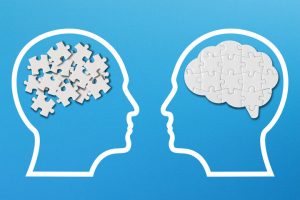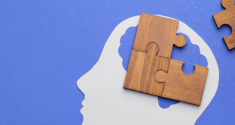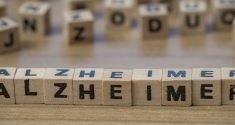People with chronic insomnia may experience a more rapid decline in memory and thinking skills as they age—along with changes in the brain that are visible on imaging tests—than people without chronic insomnia. This is according to a study by the Mayo Clinic published in the American Academy of Neurology’s journal Neurology.
How Sleep and Dementia Risk are Related
Recent findings suggest that sleep disorders are more common in older adults in particular. But younger people are also often severely affected. The causes are varied and include stress, poor sleep hygiene, certain medications, and certain dietary habits. Anxiety and depression can also play a role. A recent study by the Mayo Clinic found that people with chronic insomnia—sleep disturbances on at least three days per week over a period of three months or longer—had a 40% higher risk of developing mild cognitive impairment or dementia than people without insomnia, which is equivalent to an additional 3.5 years of aging. The study does not prove that insomnia causes brain aging, but merely shows a correlation. “Insomnia not only affects how you feel the next day—it can also affect your brain health over time,” said study author Dr. Diego Z. Carvalho of the Mayo Clinic in Rochester, Minnesota, and a member of the American Academy of Neurology. “We observed a faster decline in thinking skills and changes in the brain that suggest chronic insomnia may be an early warning sign or even a factor in future cognitive problems.”
 The study followed a group of cognitively healthy older adults—2,750 people with an average age of 70—for an average of 5.6 years. Of the participants, 16% suffered from chronic insomnia. At the start of the study, participants were asked whether they had slept more or less than usual in the past two weeks. They also completed annual thinking and memory tests, and some underwent brain scans to look for white matter hyperintensities—areas where small vascular diseases may have damaged brain tissue—and amyloid plaques, a protein that can accumulate and is associated with Alzheimer’s disease. During the study, 14% of people with chronic insomnia developed mild cognitive impairment or dementia, compared with 10% of those who did not suffer from insomnia. Taking into account factors such as age, high blood pressure, use of sleeping pills, and a diagnosis of sleep apnea, they found that people with insomnia had a 40% higher risk of developing mild cognitive impairment or dementia than people without insomnia. They also showed faster declines on tests that measure various thinking skills.
The study followed a group of cognitively healthy older adults—2,750 people with an average age of 70—for an average of 5.6 years. Of the participants, 16% suffered from chronic insomnia. At the start of the study, participants were asked whether they had slept more or less than usual in the past two weeks. They also completed annual thinking and memory tests, and some underwent brain scans to look for white matter hyperintensities—areas where small vascular diseases may have damaged brain tissue—and amyloid plaques, a protein that can accumulate and is associated with Alzheimer’s disease. During the study, 14% of people with chronic insomnia developed mild cognitive impairment or dementia, compared with 10% of those who did not suffer from insomnia. Taking into account factors such as age, high blood pressure, use of sleeping pills, and a diagnosis of sleep apnea, they found that people with insomnia had a 40% higher risk of developing mild cognitive impairment or dementia than people without insomnia. They also showed faster declines on tests that measure various thinking skills.
Sleep Promotes Brain Resilience
Among people with insomnia, the researchers determined the type of insomnia: those who had slept less than usual in the past two weeks, or those who had slept more than usual in the past two weeks. Those who reported getting less sleep than usual were more likely to have lower cognitive test scores at the start of the study, comparable to being four years older. They also had more white matter hyperintensities and amyloid plaques. For amyloid, the effect was similar to that seen in people with the APOE-ε4 gene, a known genetic risk factor. In contrast, individuals who reported getting more sleep than usual were more likely to have fewer white matter hyperintensities at the start of the study. Some groups were particularly vulnerable. Participants who carry the APOE-ε4 gene—which is associated with a higher risk of Alzheimer’s disease—showed a greater decline in memory and thinking skills.
“Our findings suggest that insomnia can affect the brain in various ways, not only through amyloid plaques, but also through small vessels that supply blood to the brain,” Carvalho said. “This underscores the importance of treating chronic insomnia—not only to improve sleep quality, but also to protect brain health in old age. Our findings also add to the growing body of evidence that sleep not only serves to restore the body, but also promotes brain resilience.” One limitation of the study was that the diagnoses of insomnia came from medical records, which do not capture undiagnosed cases or reflect the severity of symptoms. The study was supported by the National Institutes of Health, the GHR Foundation, the Mayo Foundation for Medical Education and Research, and a grant from Sleep Number Corporation to Mayo Clinic.







